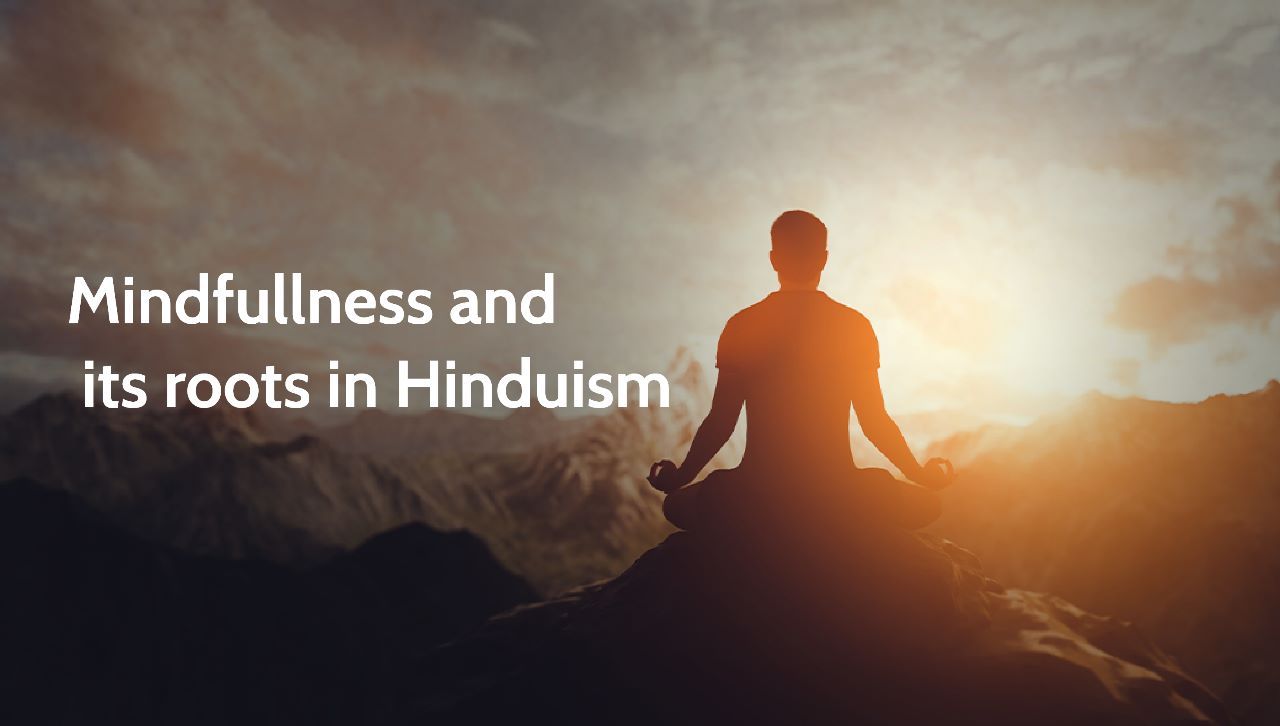Mindfullness and its roots in Hinduism


Mindfullness and its roots in Hinduism
In recent years, mindfulness has become an increasingly popular practice, especially in the Western world. It has become an important tool that psychologists advocate to deal with a variety of stress related problems in children and adults alike. It involves paying attention to the present moment and being fully engaged in what we're doing, without judgment or distraction. The word ‘mindfulness’ is a really good one and one wonders if there is an equivalent in any Indian language. Although the west has, as always, given the impression that it is a concept they have developed recently, it has in fact been practised for generations and inspired by Hindu traditions.




Hinduism, or Sanatana Dharma is one of the oldest religions in the world, and it has a rich history of spiritual practices and philosophical teachings. One of the core concepts in Hinduism is the idea of oneness or unity. This idea is expressed through the concept of Brahman, which refers to the ultimate reality and source of all existence. According to Hindu philosophy, everything in the universe is connected, and our true nature is the same as that of Brahman. This idea of oneness is central to mindfulness as well, which emphasises the interconnectedness of all things and the importance of being fully present in the moment. An interesting tradition that is followed by Hindus is decorating their front porches with designs and pattern called kolams. It was something that was changed daily, and so required focussed attention on producing something beautiful at the front door. One had to be in the moment and connect with the design in order to achieve this. Books with kolam designs as well are easily available to purchase these days.
Another important aspect of Hinduism that has influenced modern-day mindfulness is the practice of meditation. Meditation is a technique that involves focusing the mind on a particular object, sound, or sensation, with the goal of achieving a state of deep relaxation and mental clarity. In Hinduism, meditation is a way of connecting with the divine and transcending the limitations of the ego. This is similar to the idea of mindfulness, which involves being fully present in the moment and letting go of our thoughts and judgments. For generations, and even to this day, Indians have spent a small portion of each day repeatedly writing Rama nama. This, we believe was the origin of the modern concept of mindfulness colouring books etc. Books designed for repeatedly writing Rama Nama can be purchased online. Setting a fixed time for this activity is a sure way of calming the mind.




India is a land of deep thinkers, revered saints and philosophers. One of the main ways in which Hindu traditions have influenced modern-day mindfulness is through the teachings of various spiritual leaders and gurus. These individuals have shared their knowledge and insights with the world, inspiring countless people to adopt mindfulness practices in their daily lives. One such figure is Paramahansa Yogananda, an Indian yogi and spiritual teacher who brought the teachings of yoga and meditation to the West in the early 20th century. His book, "Autobiography of a Yogi," has become a classic in spiritual literature and has inspired millions of people around the world to explore the path of self-realisation.
It would be fair to conclude that modern-day mindfulness is definitely deeply rooted in Hindu traditions, most of which revolve around the interconnectedness of everything and the importance of being fully present in the moment.


